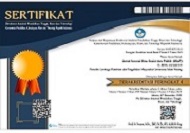Collaborative governance in tourism development in the city Surabaya after pandemic
Keywords:
Tourism Development, Collaborative Governance, Surabaya CityAbstract
The tourism sector in the pandemic era is the sector most affected. So far, the development of the tourism sector, especially in big cities, has only focused on government and private actors. In big cities, there are two groups of people: local communities and urban communities. This community group in the tourism development process was never involved. Surabaya is one of the second largest cities in Indonesia, where the development of the tourism sector is carried out quite massively. From this problem, the researcher wants to see how the collaborative governance process in the city of Surabaya is. This study used qualitative methods, and data search techniques were carried out through in-depth interviews. Data analysis in this study uses the collaborative governance theory of Ansell and Gash. The results show that collaborative governance in Surabaya has not been synchronized between fellow actors. It can be seen from the government actors who have two tourism promotion institutions, but these two institutions are still running independently. The community actors are also not involved in the tourism development process, which can be seen from the people who do not know when there is tourism development in the area where they live. Meanwhile, private actors who act as developers in the development process do not use local communities as workers. Post-pandemic collaborative governance in developing societies cannot run effectively because their resources are less than optimal.
References
Anholt, S. (2005). Anholt nation brands index: How does the world see America? Journal of Advertising Research, 45(3), 296–304. https://doi.org/10.1017/S0021849905050336
Ansell, C., & Gash, A. (2008). Collaborative governance in theory and practice. Journal of Public Administration Research and Theory, 18(4), 543–571. https://doi.org/10.1093/jopart/mum032
Charalabidis, Yannis, sotirios K. (2012). Empowering open and collaborative governance: Technologies and methods for online citizen engagement in public policy making. spinger.
Emerson, K., Nabatchi, T., & Balogh, S. (2012). An integrative framework for collaborative governance. Journal of Public Administration Research and Theory, 22(1), 1–29. https://doi.org/10.1093/jopart/mur011
Fitriana, F., Hilman, Y. A., & Triono, B. (2020). Peran Dinas Pariwisata dan Kebudayaan Dalam Upaya Pelestarian Kesenian Budaya Lokal. Jurnal Inovasi Ilmu Sosial Dan Politik (JISoP), 2(1), 1–10. https://doi.org/10.33474/jisop.v2i1.4899
Hardianto, W. T., Yolanda, F. A., & Adiwidjaja, I. (2020). Upaya Pemerintah Daerah Dalam Pengembangan Potensi Pariwisata. Jurnal Inovasi Ilmu Sosial Dan Politik (JISoP), 2(2), 188–195. https://doi.org/10.33474/jisop.v2i2.6818
Hartman, C. L., Hofman, P. S., & Stafford, E. R. S. T. (2002). Chapter 2 Potential and Limits. Springer Link, 8, 21–40.
Huxham, C., Vangen, S., Huxham, C., & Eden, C. (2000). The Challenge of Collaborative Governance. Public Management: An International Journal of Research and Theory, 2(3), 337–358. https://doi.org/10.1080/14719030000000021
Kirana, C. A. D., & Artisa, R. A. (2020). Pengembangan Desa Wisata Berbasis Collaborative Governance di Kota Batu. Kolaborasi : Jurnal Administrasi Publik, 6(1), 68–84. https://doi.org/10.26618/kjap.v6i1.3119
Lindmark, A., Sturesson, E., & Nilsson-Roos, M. (2009). Difficulties of collaboration for innovation - A study in the Öresund region. 1–236.
Mirza, R., Universitas, D., Mada, G., Yoanes, I., & Simbolon, K. G. (2017). Analisis Penerapan Collaborative Governance dalam Pengelolaan Pariwisata Bencana Lava Tour. Forum Ilmu Sosial, 44(1), 43–54. https://doi.org/10.15294/fis.v44i1.9858
Prabowo, A., Muluk, M. R. K., & Hayat, A. (2021). Model Collaborative Governance Dalam Pembangunan Desa Pada Masa Pandemi Covid-19. PUBLISIA: Jurnal Ilmu Administrasi Publik, 6(1), 15–31. https://doi.org/10.26905/pjiap.v6i1.5393
Priambodo, B. (2021). Implementation of Increased Education Participation in the Pandemic Era Through the Conditional Cash Transfer. Nidhomul Haq Jurnal Manajemen Pendidikan Islam, 7(1), 156–166. https://doi.org/10.31538/ndh.v7i1.2105
Priambodo, B., & Chabibi, M. (2021). Praktik Politik Tata Ruang Di Kabupaten Tuban Dalam Proses Industrialisasi. Jurnal Politik Indonesia (Indonesian Journal of Politics), 7(1), 40. https://doi.org/10.20473/pi.v7i1.29971
Priambodo, B., & Manggalou, S. (2021). Synergy of Pentahelix in Tourism Development in the City. 2nd ICONIDS, 89–94.
Resmawa, I. N., & Masruroh, S. (2019). Konsep Dan Strategi Pengembangan Creative Tourism Pada Kampung Parikan Surabaya. Ikraith-Humaniora, 3(2), 25–30. https://journals.upi-yai.ac.id/index.php/ikraith-humaniora/article/view/434
Robertson, P. J., & Choi, T. (2010). Ecological governance: Organizing principles for an emerging era. Public Administration Review, 70(SUPPL. 1), s89–s99. https://doi.org/10.1111/j.1540-6210.2010.02250.x
Sujana, A. A. P. O. (2021). Implementasi Kebijakan Pembatasan Bangunan Akomodasi Wisata dalam Menopang Pariwisata Berkelanjutan. Jurnal Inovasi Ilmu Sosial Dan Politik (JISoP), 3(2), 142. https://doi.org/10.33474/jisop.v3i2.13483
Sutana, I. G., & Paramita, I. B. G. (2021). Konsep pembangunan pariwisata milenial di kabupaten buleleng. Genta Hredaya: Media Informasi Ilmiah Jurusan Brahma Widya STAHN Mpu Kuturan Singaraja, 5(2), 205–213. https://doi.org/10.55115/gentahredaya.v5i2.1517
Yasintha, P. N. (2020). Collaborative Governance Dalam Kebijakan Pembangunan Pariwisata Di Kabupaten Gianyar. Jurnal Ilmiah Dinamika Sosial, 4(1), 1–23. https://doi.org/10.38043/jids.v4i1.2219
Downloads
Published
How to Cite
Issue
Section
License
Copyright (c) 2022 Bayu Priambodo

This work is licensed under a Creative Commons Attribution-ShareAlike 4.0 International License.
.


_-_Copy.jpg)





